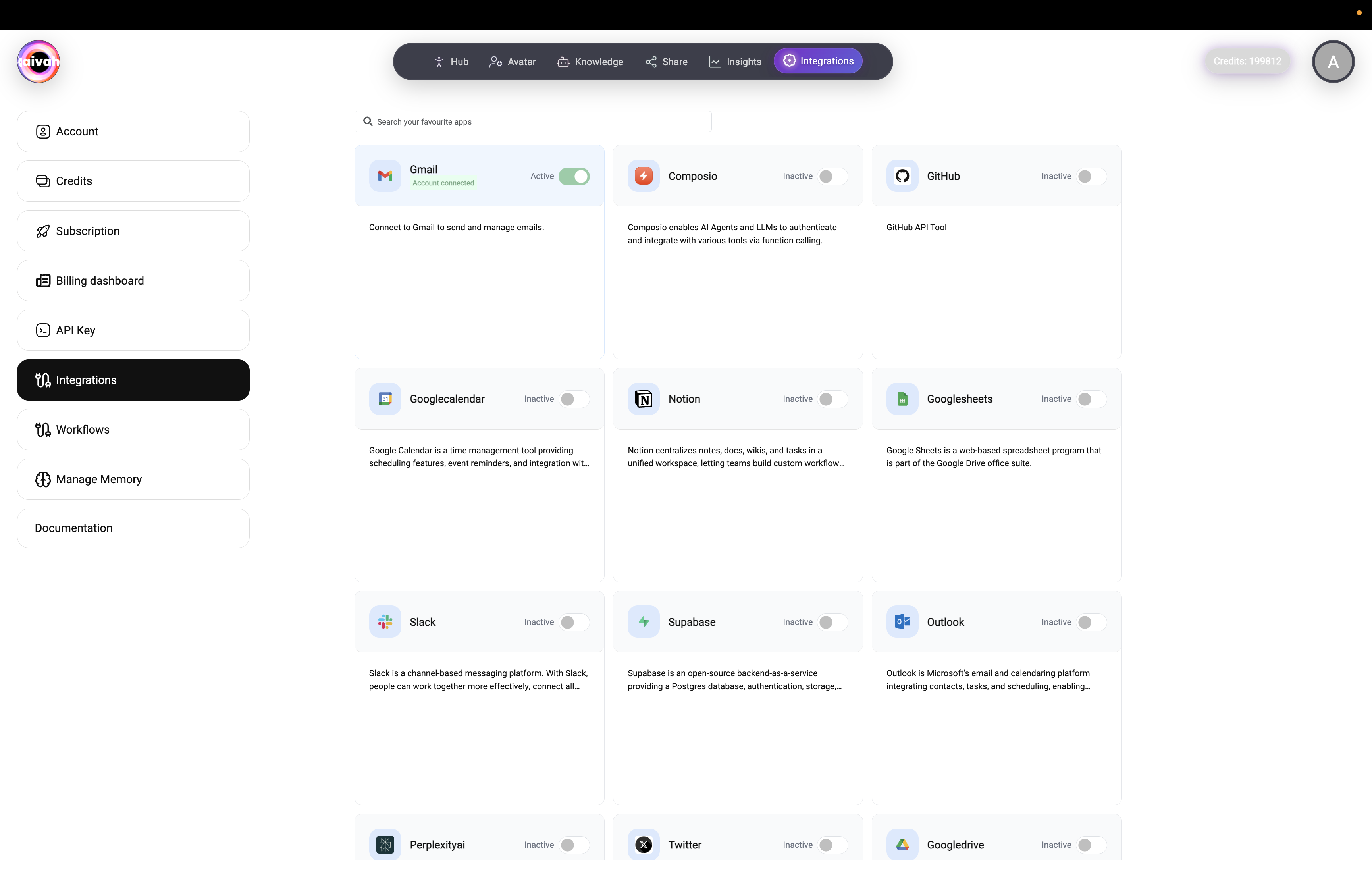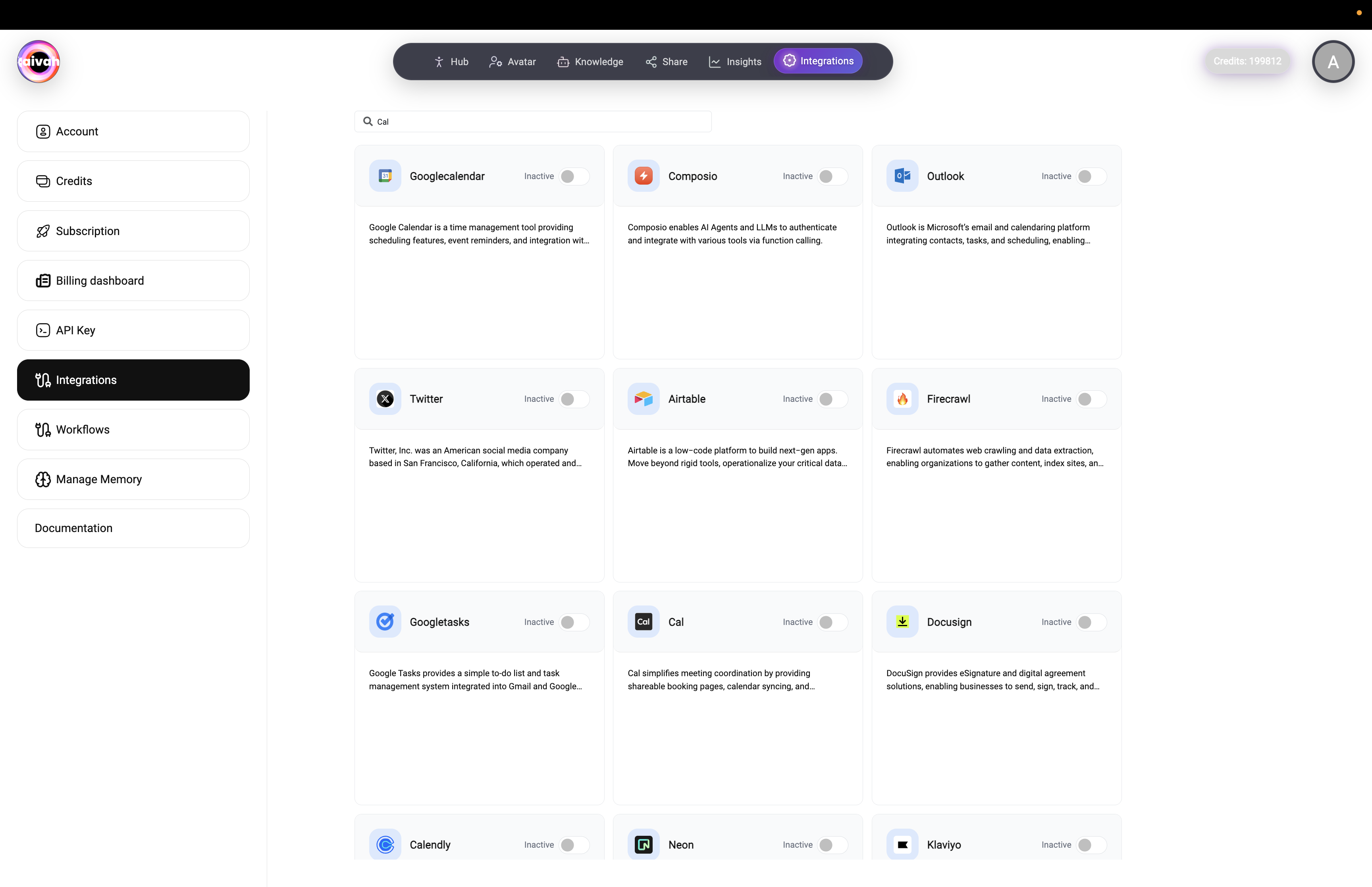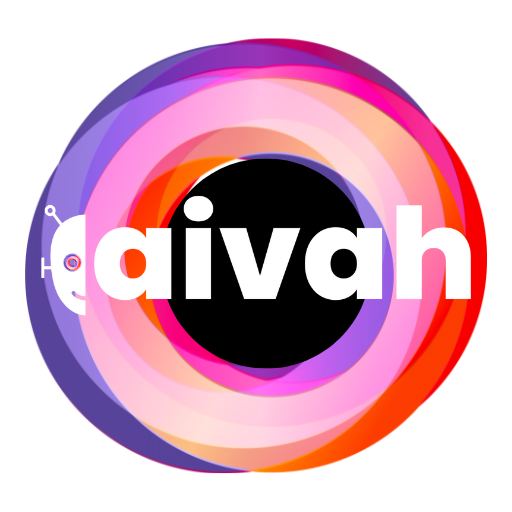MCP Tools Integration
Connect your AIVAH agents to a wide range of applications and services using the Model Context Protocol (MCP). This powerful integration framework enables seamless connectivity with popular productivity tools and custom applications.
🔌 Available Integrations
Communication & Collaboration
- Gmail: Send and manage emails directly through your agent
- Slack: Post messages, manage channels, and interact with teams
- Microsoft Outlook: Email management and calendar integration
Productivity & Project Management
- Notion: Create, read, and update Notion pages and databases
- Google Calendar: Schedule meetings and manage appointments
- Google Sheets: Read and write spreadsheet data
Development & Code Management
- GitHub: Repository management, issue tracking, and code operations
- Composio: Advanced workflow automation and integration platform
Document & File Management
- Google Drive: File storage, sharing, and document management
- Airtable: Database operations and record management
Database & Backend Services
- Supabase: Database operations and backend functionality
- Perplexity AI: Enhanced search and research capabilities
Design & Creative Tools
- Figma: Design file access and collaboration
- DocuSign: Document signing and workflow management
Task & Time Management
- Google Tasks: Task creation and management
- Calendly: Meeting scheduling and availability management
Social & Communication Platforms
- Twitter: Social media posting and engagement
- Firecrawl: Web scraping and data extraction
🔍 Finding Your Apps
 Use the search functionality to quickly find and configure your desired integrations:
Use the search functionality to quickly find and configure your desired integrations:
- Search Interface: Type “Cal” or any app name to filter available integrations
- Category Browsing: Browse by categories like productivity, communication, or development
- Status Indicators: See which integrations are active or inactive at a glance
⚙️ Integration Setup Process
Step 1: Select Your Integration
- Navigate to the Integrations section in your AIVAH dashboard
- Use the search bar to find your desired app or browse by category
- Click on the integration you want to configure
Step 2: Authentication
Each integration requires specific authentication:- OAuth 2.0: Most modern apps use OAuth for secure authentication
- API Keys: Some services require API key configuration
- Webhook Setup: Real-time integrations may need webhook configuration
Step 3: Configure Permissions
Define what your agent can do with each integrated service:- Read Access: View information from the connected app
- Write Access: Create and modify data in the connected app
- Administrative Access: Full management capabilities (where supported)
Step 4: Test Connection
- Connection Validation: Verify authentication and permissions
- Functionality Testing: Test basic operations to ensure proper setup
- Error Handling: Review any connection issues and resolve them
🛠️ Popular Integration Examples
Gmail Integration
Capabilities:- Send emails on behalf of users
- Read and organize inbox messages
- Manage email labels and filters
- Schedule email sending
- Google account authentication
- Gmail API access permissions
- Optional: Custom email templates
Slack Integration
Capabilities:- Post messages to channels
- Send direct messages
- Manage channel membership
- Upload files and attachments
- Slack workspace permissions
- Bot token configuration
- Channel access permissions
GitHub Integration
Capabilities:- Repository management
- Issue creation and tracking
- Pull request operations
- Code review assistance
- GitHub personal access token
- Repository access permissions
- Webhook configuration (optional)
Notion Integration
Capabilities:- Database operations
- Page creation and updates
- Content management
- Template utilization
- Notion workspace access
- Integration permissions
- Database sharing settings
🔧 Advanced Configuration
Custom MCP Servers
Build your own integrations using the MCP protocol:- Protocol Implementation: Follow MCP specification
- Server Development: Create custom MCP server
- AIVAH Registration: Register your custom server
- Testing & Deployment: Test thoroughly before production use
Workflow Automation
Combine multiple integrations for powerful workflows:- Multi-App Operations: Chain operations across different apps
- Conditional Logic: Use if/then logic for smart automation
- Data Synchronization: Keep information synchronized across platforms
📊 Integration Management
Monitoring & Analytics
- Usage Statistics: Track integration usage and performance
- Error Reporting: Monitor and resolve integration issues
- Performance Metrics: Measure response times and reliability
Security & Compliance
- Access Controls: Manage who can use which integrations
- Audit Logging: Track all integration activities
- Data Protection: Ensure compliance with privacy regulations
🚀 Best Practices
Security
- Principle of Least Privilege: Only grant necessary permissions
- Regular Audits: Review and update access permissions regularly
- Token Rotation: Regularly refresh API keys and tokens
Performance
- Rate Limiting: Respect API rate limits for each service
- Caching: Use caching where appropriate to improve performance
- Error Handling: Implement robust error handling and retry logic
User Experience
- Clear Feedback: Provide clear feedback on integration actions
- Graceful Degradation: Handle service outages gracefully
- Documentation: Keep integration capabilities well-documented
🆘 Troubleshooting
Common Issues
- Authentication Failures: Check credentials and permissions
- API Rate Limits: Monitor usage and implement appropriate delays
- Service Outages: Have fallback strategies for service interruptions
- Permission Errors: Verify and update access permissions
Support Resources
- MCP Documentation: Official protocol documentation
- Community Forums: Connect with other developers and users
- Support Tickets: Direct support for complex integration issues
- Integration Guides: Step-by-step guides for popular services
